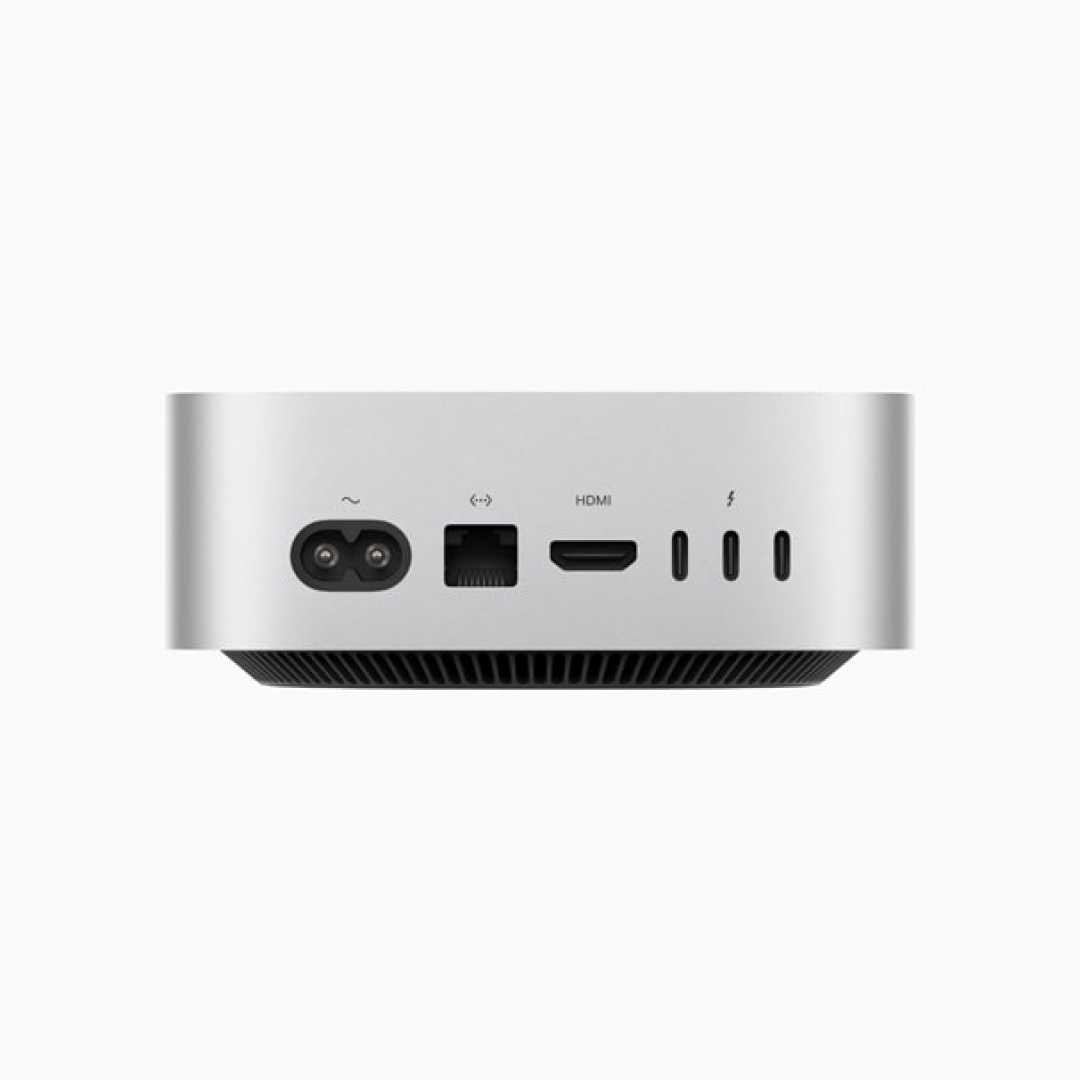Tech
Apple’s New M4 Mac Mini: A Compact Powerhouse with Enhanced Performance and Affordability

Apple has unveiled the latest iteration of its Mac Mini, featuring the new M4 and M4 Pro chips, marking the first major redesign of the product since 2010. The new Mac Mini is significantly smaller, measuring 5 x 5 x 2 inches, and resembles a scaled-down version of the Mac Studio with its brushed aluminum and rounded corners.
The base model of the M4 Mac Mini starts at $599, retaining the same price point as its predecessor while offering substantial upgrades. It now comes with 16GB of RAM (up from 8GB), two USB-C ports on the front, and a headphone jack for easy access. The M4 Pro version, starting at $1,399, can be configured up to 64GB of RAM and 8TB of storage, making it a powerful option for those needing high-performance capabilities.
The new Mac Mini boasts improved performance, with the M4 chip offering up to 25% faster performance and the M4 Pro chip delivering up to 45% faster performance compared to their M2 predecessors. Benchmarks show the M4 Pro Mac Mini achieving a multi-core Geekbench score of 22,094, significantly outperforming the previous Mac mini with the M2 Pro chip.
In terms of connectivity, the Mac Mini includes three Thunderbolt ports on the back (Thunderbolt 5 on the M4 Pro model), an HDMI port, an Ethernet jack, and the newly added front-facing USB-C ports. However, it lacks Wi-Fi 7, supporting only Wi-Fi 6E, and does not include an SD card slot, a feature available on the Mac Studio.
Reviewers have praised the Mac Mini’s thermal design, noting that while the fan can be triggered during intense workloads, it is generally quiet and efficient. The device’s compact size and front-facing ports make it highly practical for users with limited desk space, allowing for easy integration into various setups.
The M4 Mac Mini is positioned as an excellent option for those needing a powerful yet space-efficient desktop, particularly for first-time buyers or those upgrading from older M1 or Intel models. However, users of recent M1 or M2 models may not find a compelling reason to upgrade unless they need the additional performance and features offered by the M4 chips.












